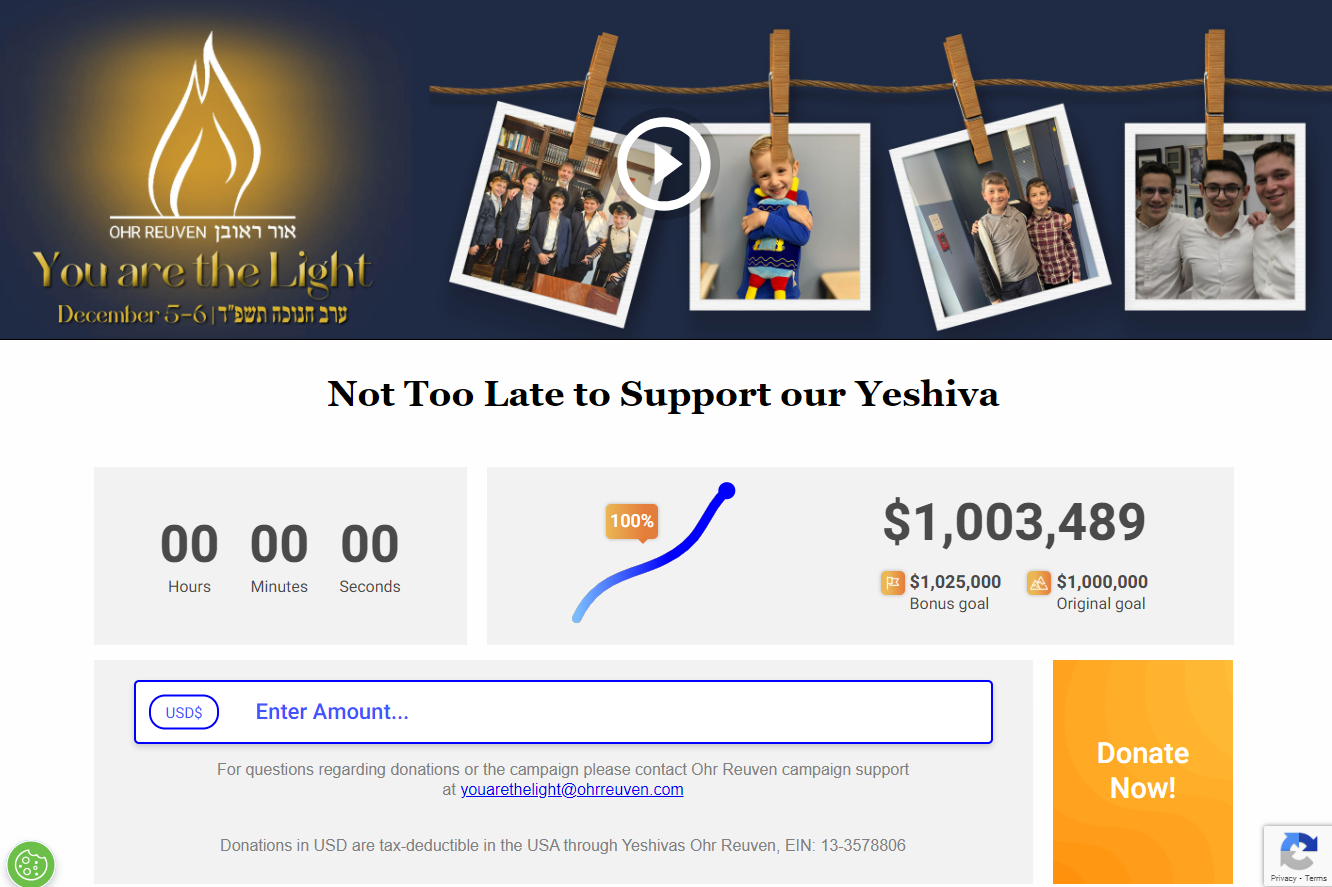The **yeshiva world** is, in a way, a vibrant, deeply connected community, one that thrives on shared values and a commitment to learning. For many, it's more than just a place; it's a way of life, shaping daily routines and influencing broader perspectives. This particular community, you know, has its own pulse, its own stories, and its own ways of staying informed, which is rather interesting to consider.
For over two decades, outlets like YWN have played a really important role in keeping this community up-to-date. They've built, apparently, a significant level of trust with hundreds of thousands of readers, delivering news that truly matters to them. It’s a clear sign, isn't it, of how much people value timely and accurate information within their specific circles.
Today, as of this Tuesday, May 28, 2024, we're taking a closer look at what makes the **yeshiva world** tick, how its news shapes daily life, and what kinds of events capture its attention. We’ll explore the kinds of updates that resonate most, from important community announcements to broader political shifts that, you know, impact everyone.
Table of Contents
- Understanding the Yeshiva World: A Community's Core
- The Heartbeat of Information: News in the Yeshiva World
- Why Accurate News Matters So Much
- Connecting with the Community
- Frequently Asked Questions About the Yeshiva World
Understanding the Yeshiva World: A Community's Core
When we talk about the **yeshiva world**, we're really referring to a distinct segment of the Orthodox Jewish community. It’s a place, more or less, where religious scholarship and traditional values are very much at the forefront. People here often dedicate their lives to studying sacred texts, and this commitment shapes, you know, nearly every aspect of their existence.
This community, you see, has its own unique social structures and, in some respects, its own cultural nuances. It's a system that supports a lifestyle centered around learning, prayer, and communal responsibility. The institutions within it, like yeshivas themselves, are not just schools; they're, arguably, centers of communal life, fostering deep connections among their members.
The shared purpose within this community creates, naturally, a very strong sense of belonging. It’s a place where individuals find support, guidance, and a collective path. This collective identity, you know, is a powerful force, influencing how information is shared and how events are perceived within its boundaries.
For those who are part of it, the **yeshiva world** provides a framework for living that is, typically, quite comprehensive. It touches upon everything from daily routines to significant life events. The news that circulates within this setting, therefore, often reflects these particular concerns and values, which is just a little different from what you might see elsewhere.
The Heartbeat of Information: News in the Yeshiva World
The news within the **yeshiva world** is, as a matter of fact, incredibly important for keeping everyone informed and connected. It’s not just about headlines; it's about sharing updates that directly affect people's lives, their families, and their communal well-being. For over 21 years, YWN, for instance, has been a trusted source, delivering breaking news and reliable updates, building two decades of trust with over half a million readers each day.
This kind of dedicated reporting means that when something happens, the community gets information that is, you know, tailored to their specific needs and interests. It’s about more than just reporting facts; it’s about presenting them in a way that resonates with the community’s values and concerns. This commitment to relevant, timely news is, quite frankly, what helps maintain that deep trust.
Community Safety and Well-being
One area where news is, arguably, extremely vital is in matters of community safety. When an event like a fire tears through an assisted living facility, trapping residents inside, including some who were hanging out of windows screaming for help, authorities said, the news spreads very quickly. It's about informing people, obviously, about immediate dangers and the well-being of their loved ones.
Such incidents highlight, in fact, the critical need for rapid and accurate reporting. The ability to quickly convey what’s happening, where it’s happening, and what actions are being taken is, essentially, paramount. This kind of information helps community members understand the situation and, perhaps, even how they can help or protect themselves.
The focus here is, you know, on the human element. It’s about real people facing real challenges, and the news aims to reflect that urgency and concern. This kind of reporting, naturally, helps foster a sense of collective responsibility and care within the **yeshiva world**, making sure everyone is aware and, in some respects, prepared.
Political Currents and Community Representation
Politics, too, plays a very significant role in the news that circulates. Decisions made by political parties and representatives can have a direct impact on the community's way of life, its institutions, and its future. So, when the rabbanim of Degel HaTorah, for example, direct the party’s representatives to immediately resign from the government and coalition, due to the government’s failure to, it's big news.
Similarly, when the Shas and UTJ parties on Tuesday publish a harsh and unusual statement against the chairman of the Foreign Affairs and Defense Committee, Yuli Edelstein, accusing him, it clearly shows the political dynamics at play. These are not just distant political events; they are, in fact, deeply felt within the community, as they often relate to religious freedoms, funding for institutions, or social policies.
News outlets in the **yeshiva world** make sure these political developments are, you know, reported with an eye toward their specific implications for the community. They often explain the background and the potential outcomes, which helps readers understand the bigger picture. This kind of detailed reporting is, typically, what allows community members to stay engaged and informed about the representation of their interests.
It’s about, you know, holding leaders accountable and ensuring that the community’s voice is heard in broader governmental discussions. This focus on political representation is, in a way, a consistent theme, reflecting the community’s active role in shaping its own destiny through political engagement.
Spiritual Guidance and Leadership
Another truly central aspect of news in the **yeshiva world** involves spiritual leadership and the passing of prominent figures. When YWN regrets to inform you of the shocking petira of Hagaon Harav Shlomo Halioua, the Rosh Yeshiva of Yeshiva Chaim Berlin in Flatbush, it's more than just a news item; it’s a profound moment for the entire community. His passing is a painful blow, as the text notes.
Such announcements carry, naturally, a very deep emotional and spiritual weight. These leaders are, you know, often seen as guiding lights, and their loss is felt across many homes and institutions. The news serves to inform, but also to unite the community in mourning and reflection.
The reporting on such events often includes details about the leader’s life, their contributions, and their lasting legacy. This helps the community remember and honor those who have, you know, dedicated their lives to spiritual guidance and education. It’s a way of preserving memory and, perhaps, even inspiring future generations to follow in their footsteps.
This focus on spiritual leaders underscores, in some respects, the very foundation of the **yeshiva world**. It shows how much reverence and respect are given to those who uphold and transmit the traditions. These news items are, you know, a clear reflection of the community's values and its enduring connection to its heritage.
Why Accurate News Matters So Much
The importance of accurate and reliable news within the **yeshiva world** can, you know, hardly be overstated. For a community that relies heavily on trust and shared information, getting the facts right is, frankly, absolutely essential. It helps people make informed decisions, whether it’s about safety, political involvement, or how to react to significant communal events.
For 21 years, YWN’s team of seasoned reporters has delivered breaking news and reliable updates, building two decades of trust with over half a million readers each day. This long track record shows, in a way, a consistent dedication to journalistic integrity within this specific context. It’s about being there, you know, for the community, day in and day out, with information that people can count on.
Reliable news also helps prevent misinformation, which can, you know, cause unnecessary anxiety or confusion. In a close-knit community, rumors can spread quickly, so having a trusted source that provides verified information is, essentially, a safeguard. It ensures that everyone is on the same page, with facts they can depend on.
Moreover, accurate reporting helps maintain a sense of stability and order, even when challenging events occur. It provides a clear picture of situations, allowing individuals and institutions to respond thoughtfully and effectively. This commitment to truth, you know, is a cornerstone of the trust that has been built over many years within the **yeshiva world**.
Connecting with the Community
Staying connected to the **yeshiva world** means, in a way, staying informed about its unique rhythm and important happenings. Whether it's through dedicated news sites or community gatherings, the flow of information is, you know, a vital part of its fabric. These connections help individuals feel part of something larger, a shared journey with common goals.
If you're looking to understand more about this vibrant community, there are many ways to engage. You can, for instance, explore various publications that focus on Jewish community life, which often provide insights into the daily goings-on. These resources offer a window into the values and activities that shape this particular segment of society.
Learning about the news and events that impact the **yeshiva world** can, obviously, give you a much richer appreciation for its enduring traditions and its forward-looking spirit. It's about seeing how a community, you know, preserves its heritage while also addressing the challenges of the present moment. You can learn more about Jewish community life on our site, and link to this page for deeper insights into specific aspects of yeshiva studies.
For those interested in the broader context of Jewish scholarship and its institutions, a well-known Jewish studies resource, for example, might offer further reading and historical perspectives. It's a way to, you know, broaden your understanding beyond the daily headlines and grasp the deeper currents that flow through this community.
Frequently Asked Questions About the Yeshiva World
What is a yeshiva, anyway?
A yeshiva is, basically, a traditional Jewish educational institution. It’s a place where students, usually male, dedicate themselves to the study of sacred Jewish texts, particularly the Talmud and Torah. It's not just about learning facts; it’s, you know, about developing a deep understanding of Jewish law, ethics, and philosophy, which is a rather intensive process.
Who are the leaders in the yeshiva world, generally speaking?
The leaders in the **yeshiva world** are, typically, highly respected rabbis and scholars. These individuals, often called Roshei Yeshiva (heads of yeshivas) or Gedolim (great ones), provide spiritual and intellectual guidance to the community. Their teachings and decisions, you know, carry significant weight and influence many aspects of religious and communal life, which is very important.
How does yeshiva news impact the community, really?
Yeshiva news impacts the community by keeping everyone informed about events that are, you know, directly relevant to their lives and values. This includes everything from important communal announcements and safety alerts to political developments that affect religious freedoms and the passing of beloved spiritual leaders. It helps foster a sense of unity and ensures that, in some respects, the community can respond together to various situations.



